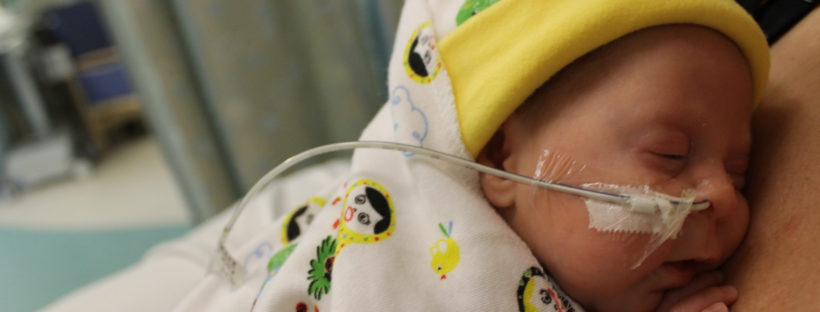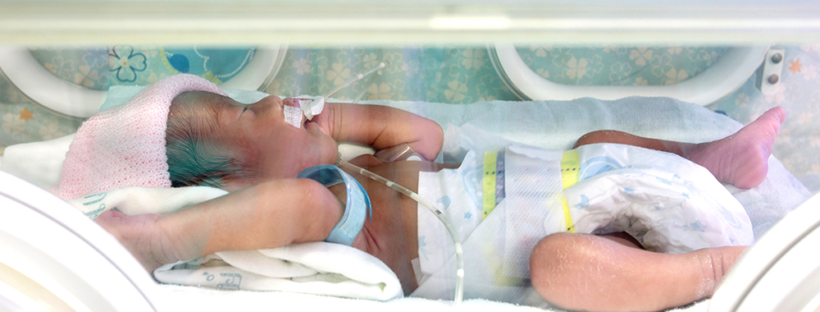Nurses live a busy lifestyle, often times you are taking care of others instead of yourself. We recently asked our members to share what healthy eating tips they would share with their follow nurses, and here’s what they had to say! Continue reading
Category: Nursing
Why I Give: To Honor My Nurse
by, Summer Hunt
 “I had a textbook pregnancy,” Pam Spears remembers. She didn’t have a lot of problems with morning sickness, and she even went the Full 40 and then some (her daughter came along 15 days after her due date). “I’d been experiencing contractions for four days when we finally checked into the hospital,” she says. After a few days of little progress and even less sleep, Pam’s husband, John, was grateful when she sent him home to rest a bit. “It’ll be hours before the baby comes,” she’d told him. But waiting in a darkened hospital room at the end of the hall, things started to veer off course from Pam’s uneventful pregnancy. Continue reading
“I had a textbook pregnancy,” Pam Spears remembers. She didn’t have a lot of problems with morning sickness, and she even went the Full 40 and then some (her daughter came along 15 days after her due date). “I’d been experiencing contractions for four days when we finally checked into the hospital,” she says. After a few days of little progress and even less sleep, Pam’s husband, John, was grateful when she sent him home to rest a bit. “It’ll be hours before the baby comes,” she’d told him. But waiting in a darkened hospital room at the end of the hall, things started to veer off course from Pam’s uneventful pregnancy. Continue reading
Top 10 Posts of 2015
When we launched AWHONN Connections in May of this year, we could not have imagined the response that we would have received from our members, nurses, parents and members of the media.
In less than a year our blog has received over 232,000 visits, from 167 countries and had 4 blogs republished on the Huffington Post! As the year comes to a close we want to say a HUGE Thank You to our readers and our bloggers.
Here’s Our 2015 Top Ten Round Up! Continue reading
Growing as a Leader
Cathy Ivory, PhD, RNC-OB
2014 AWHONN President
At some point in their life, every person is called upon to lead.
As perinatal nurses, the call to lead may come from many directions. Perhaps you have a friend or loved one who needs to make an important decision about a pregnancy or birth experience and looks to you for advice. You base that advice on current evidence and your experience as a nurse; if we are honest, we acknowledge that our own birth experiences (if we have them) influence the advice given to others. Those who ask our advice look to us as leaders in nursing, even if we consider ourselves (to use a phrase I really dislike) “just a nurse”. At the bedside, we lead by advocating for our patients and families, by mentoring new nurses, and by participating in unit improvement activities. Continue reading
Heart, Head & Health: My Nurse in Washington Internship Experience
by, Cheryl Larry-Osman, RN, MS, CNM
 As a nurse with more than 20 years of obstetrical experience, I’ve had countless opportunities to advocate for patients one-on-one in a clinical setting. Ensuring that women and infants receive the best care possible is my passion. Continue reading
As a nurse with more than 20 years of obstetrical experience, I’ve had countless opportunities to advocate for patients one-on-one in a clinical setting. Ensuring that women and infants receive the best care possible is my passion. Continue reading
8 Tips For The Professionals Role in the Adoption Process
by, Emily Morehead, MA
 November is National Adoption Month.
November is National Adoption Month.
For many reasons, clinicians, including nurses, may feel uncertain about how to care for a patient planning adoption.
They may have little experience with patients planning adoption or be unsure of their hospital’s policies about care of patients planning adoption. Because adoption has changed so much in recent years, having current information is important. Sometimes personal or professional experiences may impact one’s perspective or opinion about adoption either positively or negatively. As with other sensitive issues, putting aside personal biases about adoption allows the clinician to appropriately help patients with their individual needs related to placing a baby for adoption. Continue reading
Why Every Baby Deserves Optimal Care In The NICU
by, Tracy Whitman, RN
Premature babies depend on us as nurses and parents to be their advocates, their protectors, and most importantly their voices. Their development in the NICU should mimic as closely as possible the uterine environment. As new parents of NICU babies, it is often hard to understand this concept, and that is when the NICU nurse is your best resource for education about your new baby. Continue reading
Auditory, Tactile, Visual & Vestibular Intervention to Reduce NICU Stress
by, Rosemary C. White-Traut, PhD, RN, FAAN
Having your new baby spend time in the Neonatal Intensive Care Unit (NICU) can be extremely stressful for both you and your baby. The bright lights, the random nature of nonhuman sounds such as beeps or monitors, and medical procedures can all create an uneasy or stressful environment.
This is concerning because stress can influence your baby’s brain development and how parents interact with their babies. However, there are ways to help reduce the long-term effect of these stressors.
There are several things you can do as parents to help reduce NICU environmental stressors. Ask your nurse for help with these suggestions. Continue reading
Nitrous Oxide: A Mom’s Perspective
by, Shauna Zurawski
I am the mother of four children, each one unique. The same can be said of their births. Because of the variety of births I have experienced, I’ve learned that for me, nitrous oxide is by far the best form of pain relief during childbirth . Continue reading
Journey of Motherhood Under the Shadow of Abuse During Pregnancy
by, Ann Bianchi, PhD, RN
Intimate partner violence (IPV) has devastating effects on a pregnant woman and her unborn child.
Intimate partner violence may be more severe and more frequent during pregnancy which poses health risks to the mother and her baby. The effects on a woman’s health due to IPV during pregnancy may extend long after the pregnancy and post-partum period. One in four women are victims of IPV and 324,000 pregnant women experience IPV each year and 1600 maternal deaths each year are the result of intimate partner violence.
This blog post is part of our IPV series and covers the effects on mother-infant bonding, maternal and fetal outcomes, and our role as nurses.
The last in our blog series coming out in winter 2015 will cover screening details for nurses. Continue reading










